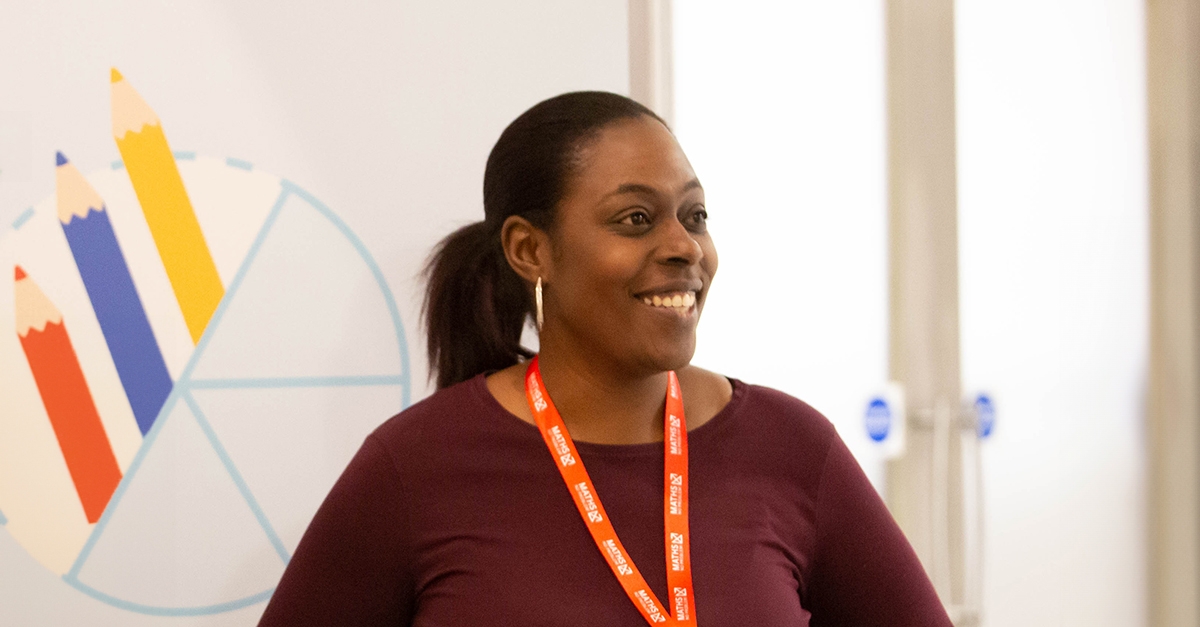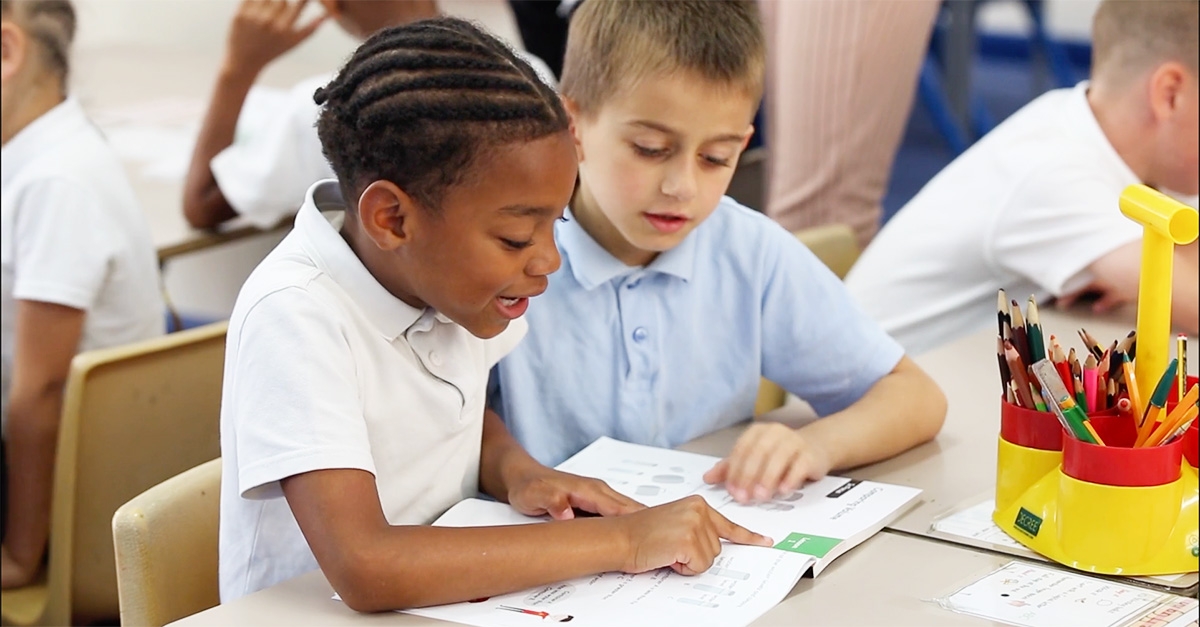Laurice Prempeh on problem-solving and empowering children to learn maths
Editor’s note: This is the second part of our two-part conversation with Laurice Prempeh. Please click here for Part 1.
“Maths — No Problem! doesn't give you problem-solving Friday. It gives you problem-solving every day.”
– Laurice Prempeh, Rosetta Primary
One of the reasons Laurice Prempeh, assistant headteacher and mathematics subject leader at Rosetta Primary in London, stands by Maths — No Problem! is because of the way it teaches kids to problem-solve.
She says the Maths — No Problem! Programme is structured to give a real-life application to every element of maths and to show children how each maths concept can be used in their everyday lives.
“Problem-solving is the biggest area that children struggle with,” says Laurice, who has been using Maths — No Problem! since 2014. “Children tend to be able to pick up fluency because it's something that the parents are really comfortable with. There are songs to learn your times tables by. But with problem-solving, the minute a child has to apply their knowledge in a novel situation, that's where they always tend to struggle.”
Every lesson begins with a problem. If the Explore task is approached well, the children have to use what they've learned previously to solve it.
“The children have to become problem-solvers,” she says, adding that so much care has gone into the way each problem in the programme is thought through. For example, the consideration put into chosen numbers and scenarios. “The teacher has to facilitate that process, but the Maths — No Problem! Programme and the problems that are posed are so well thought through, that it makes it a really powerful programme.”
“Maths — No Problem! doesn't give you problem-solving Friday,” she says. “It gives you problem-solving every day.”
The importance of training
Laurice has been a maths subject leader for the past seven years, and prior to that had hands-on classroom experience spanning Reception to Year 6. She says one of the critical elements of Rosetta Primary’s success is training, and she ensures the training is as effective as possible by delivering what she calls “really bespoke Insets.” For example, before deciding what a particular training day will be about, she’ll spend time having informal conversations with her teachers and dropping into classes for “book looks.” Because of her extensive experience, she can see right away where the children can do more or do better or make progress. She then plans accordingly.
To illustrate, Laurice recently delivered Inset training on journalling because she’d noticed her more able children weren't being challenged in their journals. Their journals looked very similar to those of the children working at National Standard. So, she did a moderation across the staff and they spoke about what they could do to make sure that their more able children were working at greater depth and what greater depth looks like. “That came directly from me looking at books and having conversations with the children and the staff.”
Journalling by concept
Over the years, Laurice and her staff have honed their approach to journalling. They tend to focus on three types—evaluative, descriptive, and creative. The process begins when the children have completed the Explore task as a class. They give feedback and a whole-class flip chart is created. This stays up in the room. Then, the children are given a variation of the Explore task to complete themselves.
Journalling is done once for every concept, and Laurice makes sure to train the teachers so that they know what each concept is and when the concept changes.
With the descriptive journal, the children have the opportunity to evaluate which of the methods they learned in class is the most efficient and why. They have to give justification.
The creative journals tend to come towards the end of chapters or the end of units. If the children are in a fractions unit, for example, they'll be given a fraction and asked to create a word story or a problem around that.
Rosetta Primary caters to around 570 boys and girls aged 4 to 11. Laurice, who describes herself as “incredibly passionate” about maths, says preparing for a day looks different for a maths teacher compared with a maths lead.
Transform Your Maths Assessment
Insights — our online assessment tool — gives you instant, powerful data to identify gaps and improve results.

Preparing for the day
Speaking of covering a Year 5 class recently, Laurice on Sunday night looked at the Maths — No Problem! website at the sequence of lessons that were being taught to make sure she had an understanding of the small steps. She also looked at the lessons that the class had done the prior week to get a handle on the resources that would be needed, manipulative-wise.
“I thought about misconceptions the children might have, because although it's not my class, I taught Year 5 for four years, so I had a good understanding of the kinds of things that would come up.”
It’s a little different as a subject lead. For her prep, Laurice looks at the planning for Year 5 and Year 6, because they’re the two year groups she’s in charge of. “I look at that on a Sunday just to make sure that nothing's been skipped, no one's going rogue and doing anything they shouldn't be doing, making sure that there's questioning and there are stem sentences on my flip charts. With my teachers, my planning is minimal, but it needs to be purposeful. So questioning and stem sentences is what I require. So I make sure that they're on there and any journals that I've planned I make sure that they're coherent and that they're actually assessing what is supposed to be assessed.”
Becoming a maths specialist
Laurice has been a maths specialist for more than four years. Her journey began when she and her colleagues invited the Hub in to support them. “It was so exciting for me to work with someone who was so knowledgeable. I sort of looked up to the specialist at the time. He was a bit of a celebrity to me.”
Towards the end that year, Laurice had the offer to become a specialist herself, an offer she “absolutely jumped at.”
“My relationship with the Hub has really developed me as a thinker,” she says, adding that she spends a lot of time in school teaching maths and talking to other teachers about teaching maths. But being a part of the Hub allows her to really think about the maths itself.
What’s the difference between thinking about teaching maths and thinking about the maths itself?
“When you teach maths, everything's in the moment and you're thinking about the 30 children in front of you and making sure that they're getting the correct answer. Whereas when you're thinking about the maths, you’re thinking about all the things they need to know to grasp the concept that they're learning and where you can go from that, and what it looks like with depth and what the struggles might be for that child.”

For Laurice, having the opportunity to sit down with people who all want to talk about the maths is “phenomenal.” She’s able to bring that level of knowledge into her teacher conversations during planning. It helps her and the staff to step back and think more about what they’re doing, “rather than just doing it and being like machines which is what we turn into sometimes.”
“I feel like I'm always developing as a practitioner, as a teacher, as a leader, and it helps me to be able to pass that forward to other schools that I work with and then the school that I'm in as well.”
Read Part I.

